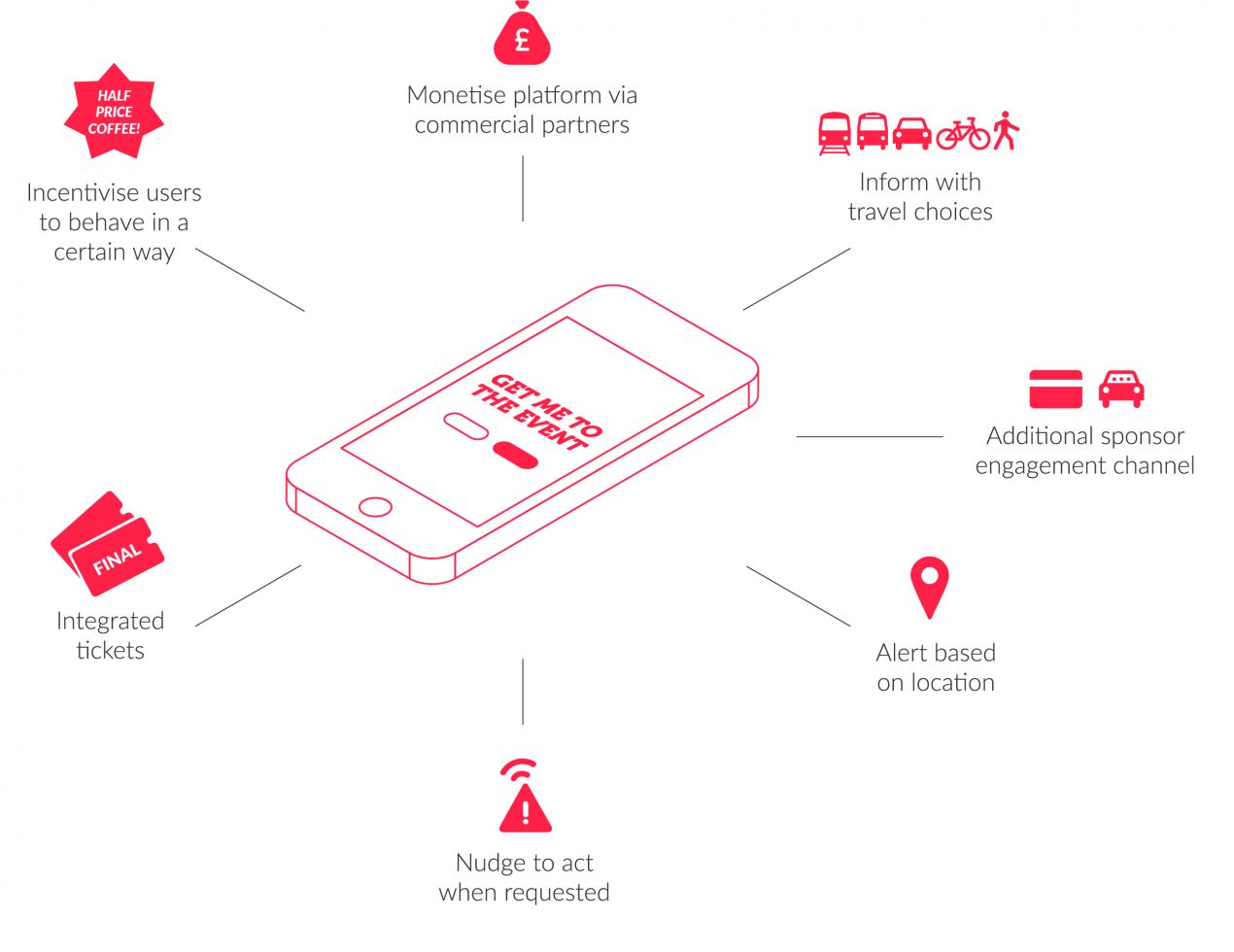The sports and events market is having to respond to the rise of digital engagement to ensure that their brands stay relevant and that they can connect with fans. The challenge for these sports brands is how to make the digital content relevant to event day and non-event day attendees. A key part of this engagement is connecting fans with multimodal transport services and using data analytics to improve the end to end journey.
As sports brands evolve their digital engagement strategies there is a growing trend to deliver event-day specific solutions, providing a smartphone app which equips fans with features such as live video content, venue access control, cashless refreshment ordering and indoor navigation. To complement this, sport venues are also being equipped with high density wi-fi networks and other connectivity services to ensure that the audience is engaged and has an optimal experience within the venue.
A successful event day for a fan is one where the travel to and from the venue is as stress-free as possible and they are given as much time as they desire to enjoy their time at the event. Stress for spectators can be reduced by ensuring that they are well-informed with timely, relevant information and an awareness of suitable travel options. Communicating transport information as part of the digital engagement strategy is therefore essential. However, the extent to which this is done and who is responsible for this engagement varies greatly.
Solutions such as Paris St Germain’s Stadium App and Olympique Lyonnais’ Parc OL App interact with the fan before they leave their home, providing transport information to help fans make the right travel choices and purchase tickets for services. The 2015 Rugby World Cup journey planner delivered by Steer Davies Gleave was also an integral part of the Travel Demand Management Strategy for the tournament and was well embedded and key in the digital communications process. Other events and venues, however, take a less integrated approach, passing any travel information needs to a third party journey planner. This disconnect limits the ability of the event operator to interact dynamically with the customer and to influence their behaviour.
As smartphone use grows, so do new ways of interacting with transport systems. New on-demand services (such as Uber), geofenced and personalised alerts, and mobile ticketing, give the user exposure to more personalised and dynamic content, and they represent an amazing opportunity for operators. Behind the scenes, the operators of these digital assets can learn from the data flow to influence behaviour. For a sporting venue, the way in which people interact with these new services needs to be controlled, to ensure that the attendees are making best use of available transport capacity, can enjoy a stress-free match day experience, and do not cause unnecessary congestion on the surrounding transport networks.
So, as sports brands invest in digital engagement they should not lose sight of the opportunity to include an affiliated mobility offering which will equip them with the means to influence dynamically the travel behaviour of their customers and ultimately to deliver an event where transport isn’t the lasting memory.
Our Sports and Major Events team at Steer Davies Gleave is working closely with our Intelligent Mobility team to advise our clients on how disruptive services, data and dynamic digital engagement can be embedded into their operations to deliver successful mobility outcomes. before they leave their home, providing transport information to help fans make the right travel choices and purchase tickets for services. The 2015 Rugby World Cup journey planner delivered by Steer Davies Gleave was also an integral part of the Travel Demand Management Strategy for the tournament and was well embedded and key in the digital communications process. Other events and venues, however, take a less integrated approach, passing any travel information needs to a third party journey planner. This disconnect limits the ability of the event operator to interact dynamically with the customer and to influence their behaviour.
Read more about the solution that we developed for the Cardiff 2017 UEFA Champions League Final.
